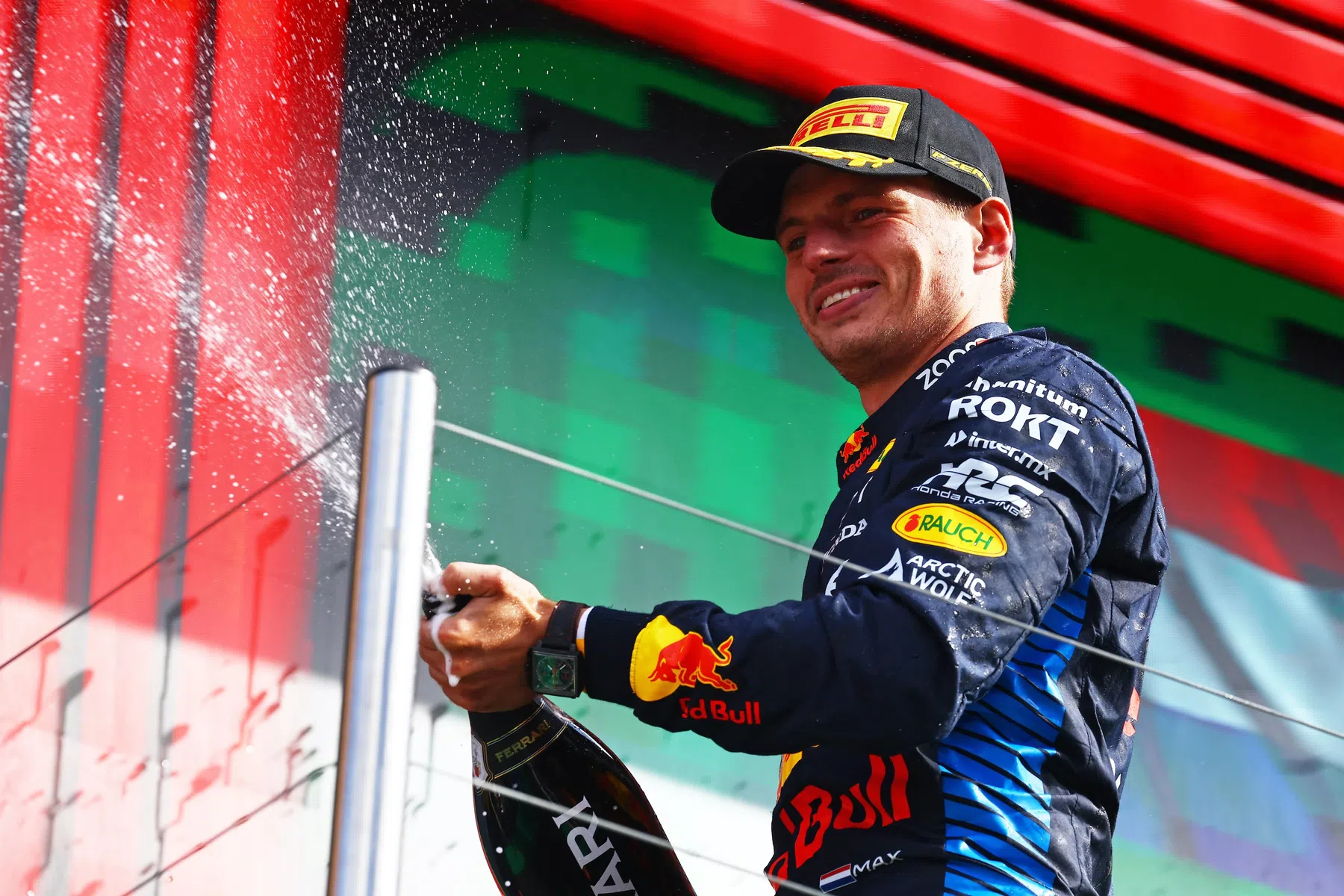Dizzying percentages for Verstappen after 200 races
F1 News

- Jeroen Immink
Despite Max Verstappen not being able to keep up with Lando Norris at the Dutch Grand Prix, the triple world champion did manage to reach the 200-race milestone at Zandvoort. Already at the age of 26, the Dutchman can say that. GPblog has dived into Verstappen's most striking statistics after 200 races.
Verstappen wears down one teammate after another
Verstappen is currently in his 11th Formula 1 season. In it, he managed to rack up no less than 108 podiums, 61 wins, 40 pole positions, five grand slams and eventually three world titles. A striking statistic is that in those 11 seasons, Verstappen has also had a number of teammates. Carlos Sainz, Daniel Ricciardo, Pierre Gasly, Alexander Albon and Sergio Perez have had the opportunity to see Verstappen up close. In addition - if you also consider the free practice sessions - Jean-Éric Vergne, Daniil Kvyat, Jüri Vips, Liam Lawson, Dennis Jake and Isack Hadjar have served as Verstappen's teammate.
Only two out of 11 seasons has Verstappen scored fewer points than his teammate. In 2016 and 2017, Ricciardo had scored more points than the Dutchman at Red Bull. For the rest, no one has ever been able to beat Verstappen.
Dizzying percentage marks Verstappen's success
Verstappen's percentages in terms of his races, are unprecedented. Out of 200 races, he managed to finish no less than 108 on the podium, resulting in a percentage of no less than 54 per cent. In doing so, the Dutchman has won 30.50 per cent of his races - 61 out of 200 - which already puts him higher than Lewis Hamilton (30.26 per cent), Michael Schumacher (29.64 per cent) and Ayrton Senna (25.47 per cent).
Verstappen, though, has already indicated that he will not drive another 200 races. "No. It's great to reach 200 races. It doesn't really feel like that much, as we already race a lot in one season. So you get there fairly quickly," the Dutchman indicated recently.
This article has been written in collaboration with Matt Gretton

